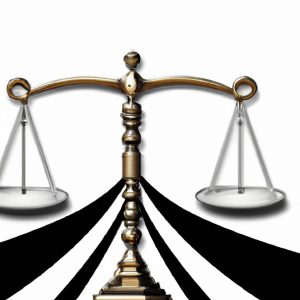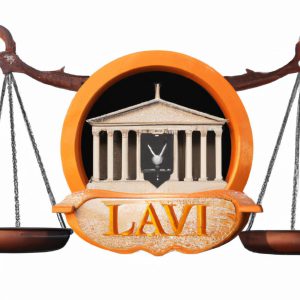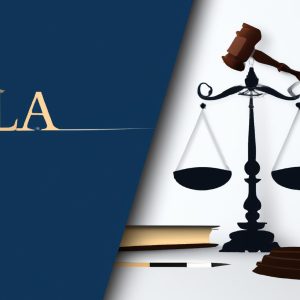As seasoned practitioners in the realm of estate planning and probate law, the team at Morgan Legal Group in New York City is well-versed in the complexities and nuances of crafting the ideal Last Will and Testament. In a world where uncertainty often reigns, having a comprehensive and carefully drafted Will in place is essential for ensuring that one’s final wishes are carried out with precision and clarity. But what, exactly, constitutes the “best” Will? In this article, we delve into the essential components and considerations that go into creating a Will that is truly tailored to your unique circumstances and desires.
Choosing the Optimal Will Structure for Estate Planning
When it comes to estate planning, choosing the optimal will structure is crucial in ensuring that your assets are distributed according to your wishes. There are various types of wills that individuals can consider, each with its own advantages and limitations. Below are some common will structures to help you determine which one is the best fit for your estate planning needs:
- Simple Will: A basic will that outlines how your assets will be distributed among your beneficiaries.
- Testamentary Trust Will: Includes provisions for setting up trusts for specific beneficiaries, such as minor children or individuals with special needs.
- Pour-Over Will: Designed to work in conjunction with a living trust, ensuring that any assets not placed in the trust during your lifetime are transferred to it upon your death.
| Will Structure | Advantages | Limitations |
|---|---|---|
| Simple Will | Easy and inexpensive to create | May not be suitable for complex estates |
| Testamentary Trust Will | Provides flexibility in distributing assets | Can be more costly to establish and administer |
| Pour-Over Will | Ensures all assets are placed in the trust | Requires ongoing management of the trust |
Examining the Benefits of a Revocable Trust in Your Will
When it comes to estate planning, one of the key considerations is whether to include a revocable trust in your will. A revocable trust, also known as a living trust, offers several benefits that can provide peace of mind and security for your loved ones after you pass away.
One of the main advantages of a revocable trust is that it allows for the seamless transfer of assets to your beneficiaries without the need for probate. This can help to avoid lengthy and costly court proceedings, ensuring that your assets are distributed according to your wishes in a timely manner. Additionally, a revocable trust offers privacy, as the details of the trust do not become part of the public record like a will does. With a revocable trust, you can also retain control over your assets during your lifetime, making changes or adjustments as needed. Overall, including a revocable trust in your will can provide flexibility, protection, and peace of mind for you and your loved ones.
Ensuring Proper Distribution with a well-crafted Pour-Over Will
When it comes to ensuring proper distribution of your assets after your passing, a well-crafted Pour-Over Will can be your best option. This type of will works in conjunction with a trust, allowing any assets not already in the trust to “pour over” into it upon your death. This ensures that all your assets are properly distributed according to your wishes, as outlined in the trust document.
A Pour-Over Will provides an added layer of protection and clarity to your estate plan, helping to avoid any potential confusion or disputes among your beneficiaries. By specifying in detail how you want your assets distributed, you can rest assured that your wishes will be carried out precisely as you intended. With the guidance of an experienced estate planning attorney, you can create a comprehensive plan that includes a Pour-Over Will to secure the future financial well-being of your loved ones.
Navigating the Complexities of Testamentary Trusts in Estate Planning
requires a deep understanding of the legal intricacies involved. Testamentary trusts are created through a will and come into effect after the testator passes away, providing a structured way to distribute assets to beneficiaries.
These trusts can be an effective tool in estate planning for individuals looking to protect their assets and ensure their wishes are carried out. Testamentary trusts offer several benefits, including:
- Providing for minor children or beneficiaries who may not be financially responsible
- Protecting assets from creditors and potential lawsuits
- Allowing for specific conditions or instructions to be attached to the distribution of assets
When considering what type of will to have to establish a testamentary trust, it is crucial to consult with experienced estate planning professionals like the Morgan Legal Group. With our expertise in estate planning, probate, elder law, wills, and trusts, we can help you navigate the complexities of testamentary trusts and create a plan that meets your unique needs and goals. Trust us to guide you through the estate planning process and ensure your assets are protected for future generations.
| Benefit | Description |
|---|---|
| Providing for minors | Ensuring assets are managed until beneficiaries reach a certain age |
| Asset protection | Shielding assets from potential lawsuits or creditors |
| Specific instructions | Allowing for detailed conditions to be placed on asset distribution |
Q&A
Q: What is the best will to have?
A: The best will to have is one that is clear, legally sound, and tailored to your individual needs and circumstances.
Q: How can I ensure my will is clear?
A: To ensure your will is clear, it is important to clearly outline your wishes for the distribution of your assets and specify who should receive what.
Q: Why is it important for my will to be legally sound?
A: It is important for your will to be legally sound to avoid any disputes or challenges after your passing. Working with a qualified estate planning attorney can help ensure your will is valid and enforceable.
Q: How can I tailor my will to my individual needs and circumstances?
A: To tailor your will to your individual needs and circumstances, consider factors such as your family dynamic, financial situation, and any specific wishes or preferences you may have for the distribution of your assets.
Q: What are some common mistakes to avoid when creating a will?
A: Some common mistakes to avoid when creating a will include failing to update it regularly, not specifying who should receive certain assets, and not accounting for all of your assets and liabilities.
Q: What should I do if I need to make changes to my will?
A: If you need to make changes to your will, it is important to consult with your estate planning attorney to ensure that any updates or revisions are made in accordance with the law.
To Wrap It Up
In conclusion, the best will to have is one that reflects your values, priorities, and wishes for the future. Whether it’s a simple handwritten document or a detailed legal document prepared by a professional, having a will in place is crucial for ensuring that your assets are distributed according to your wishes. So take the time to consider what matters most to you and make sure your will accurately reflects your intentions. Your loved ones will thank you for it.
What is the Best Will to Have: The Key to Protecting Your Legacy
If you have assets or properties that you want to pass on to your loved ones after your passing, it is essential to have a will in place. A will is a legal document that outlines how you want your assets to be distributed and who will manage them after you pass away. Without a will, your assets may be subject to the laws of intestacy, which can lead to your assets being distributed in a way that may not align with your wishes.
But with so many types of wills available, it can be overwhelming to determine which is the best will to have for your specific situation. In this article, we will discuss the different types of wills and their benefits to help you decide the best will to have.
Types of Wills:
1. Simple Will
A simple will is a basic document that outlines how you want your assets to be distributed after your death. It is the most common type of will, particularly for individuals with uncomplicated assets and who have a smaller estate. A simple will is usually drafted by an attorney, but you can also create one using a will template.
Benefits:
– Relatively quick and easy to create
– Inexpensive compared to other types of wills
– Suitable for individuals with straightforward assets and wishes
2. Testamentary Trust Will
A testamentary trust will, also known as a testamentary will, is a document that establishes a trust after the death of the testator (the person creating the will). The trust controls the distribution of assets to the beneficiaries, usually minor children, until they reach a certain age or milestone, such as graduating college. This type of will is commonly used to protect assets and to minimize taxes.
Benefits:
– Provides more control over how assets are distributed
– Can provide asset protection for beneficiaries
– Allows for tax planning
3. Joint Will
A joint will is a single document that outlines the wishes of a couple and how they want their assets to be divided after their passing. This type of will is often created by married couples or domestic partners and is less common due to its potential shortcomings.
Benefits:
– Can reduce costs as only one document needs to be created
– Allows for the couple’s assets to be distributed in the way they agree upon
Downsides:
– Upon the death of one spouse, the will is legally binding, making it difficult to change
– Can lead to complications if the surviving spouse remarries or has a change in circumstances
4. Living Will
A living will, also known as an advance healthcare directive, is a document that outlines a person’s wishes for their end-of-life medical care. This type of will comes into effect if the individual becomes incapacitated and unable to make decisions for themselves.
Benefits:
– Provides peace of mind for individuals who have specific medical wishes
– Can prevent family members from having to make difficult decisions on behalf of their loved ones
Now that we have covered the different types of wills let’s discuss the best will to have based on your situation.
Best Will for Individuals with Simple Assets:
If you have a smaller estate and straightforward assets, a simple will is the best will to have. It is quick and easy to create and relatively inexpensive compared to other types of wills. However, it is essential to review and update your will regularly, particularly if your financial situation changes.
Best Will for Individuals with Large Estates:
For individuals with more complex assets, a testamentary trust will is the best option. It allows for more control over how your assets will be distributed and can provide asset protection for your beneficiaries. Additionally, a testamentary trust will allows for tax planning, which can save your beneficiaries money in the long run.
Best Will for Married Couples:
For married couples, a joint will can be a viable option, as it allows for both partners’ assets to be distributed in the way they agree upon. However, it’s essential to consider the potential downsides, such as the inability to make changes after one spouse passes away.
Best Will for Individuals with Specific Medical Wishes:
If you have specific medical wishes, a living will is the best will to have. It ensures that your wishes for end-of-life care are known and followed, providing peace of mind for both you and your loved ones.
In conclusion, having a will in place is crucial, regardless of the type. It allows you to protect your assets and ensure they are distributed according to your wishes. When deciding which is the best will to have, consider your financial situation, family dynamics, and any specific wishes you may have. It’s also important to remember to review and update your will regularly to reflect any changes in your life. We hope this article has provided valuable information to help you make an informed decision and protect your legacy.





